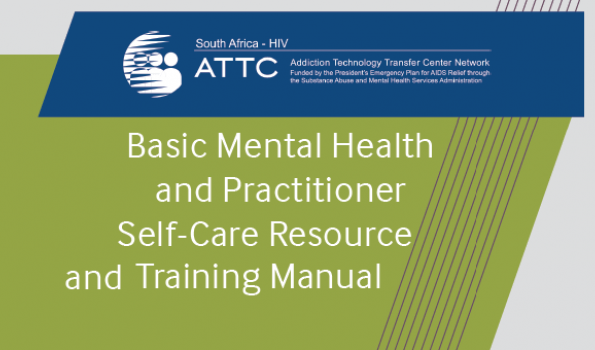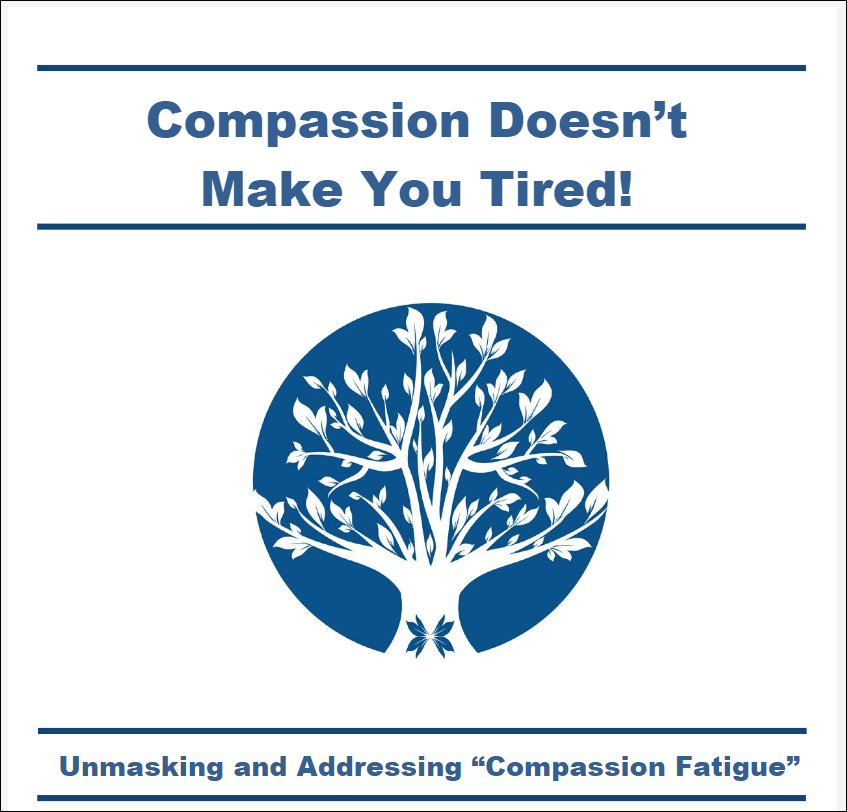
Congratulations on our new cadre of ATTC & PTTC trainers. Each trainer successfully completed two Train-the-Trainer event in Kansas City; Recovery-Ready Workplaces: Working with Employers to Support Employees in Recovery & The Impact of Compassion Fatigue in Peer Work.
For contact information on our new trainers, please visit the ATTC Trainer Registry.
Compassion Fatigue, also called “vicarious traumatization” or “secondary traumatization”, is the emotional residue or strain of exposure to working with those suffering from the consequences of traumatic events. It differs from burn-out, but can co-exist. Professionals in behavioral health or “helping profession” settings are at risk for developing secondary traumatic stress, depression, and/or burnout as they attend to others’ needs.
Resilience is the process of adapting well in the face of adversity, trauma, tragedy, threats or significant sources of stress.
View, download, and share our compiled resources listed below related to compassion fatigue and resilience.
 Provider Self-Care and Online Engagement Products
Provider Self-Care and Online Engagement Products
In response to the COVID19 pandemic, the South Africa HIV ATTC team has developed multiple products to support our partners and constituents during this time. The South Africa ATTC is well-positioned to continue supporting people with off-the-shelf products and virtual trainings and technical assistance remain available. These exercises detail self-care techniques as well as guidance on conducting and facilitating engaging online meetings. Though these products are geared towards healthcare providers, they are widely applicable.
New England ATTC Self-Care Exercises
Reflect and Breathing Exercise - As a caregiver, taking care of yourself is essential. This is especially true in this moment of great instability when it is common to feel uncomfortable emotions such as stress, anxiety, anger, and sadness. One way to practice self-care is by becoming still through intentional reflection and breathing.
Wellness Wheel - Taking care of yourself is essential in moments of great instability. This brief activity can be used to highlight areas in your life that may be out of balance, while the questions may be used to assist in achieving greater balance in caring for yourself over this time.
Pacific Southwest ATTC's 5-part Curriculum Infusion Package (CIP) on Compassion Fatigue and the Behavioral Health Workforce was developed in 2020 to help college and university faculty infuse brief, science-based content into existing substance use disorder-related course syllabi (e.g., foundation of addiction courses, ethics, counseling courses, etc.). Instructors can select the specific content to infuse throughout the duration of the course depending on specific needs of the learners.
This 4-part online recorded series from the Mountain Plains Addiction Technology Transfer Center (MPATTC) addresses the capacity of behavioral health professionals to address compassion fatigue in the workforce, especially in the wake of the opioid epidemic.
Guidebook: Compassion Doesn't Make You tired! Unmasking and Addressing "Compassion Fatigue"
Because of her work, Pamela Woll (the author of this guidebook) is acutely aware of the need for exploration of this subject among people who work in the behavioral health field.
 This guidebook is designed to help individuals, pairs, and groups explore the possible sources of their workplace stress and distress, and gain a better understanding of what they’re really experiencing. Its 19 chapters include an exploration of the nature of compassion, different types of stressors that might be among the sources of their distress, and a final section full of recommendations for identifying and addressing the specific challenges they face.
This guidebook is designed to help individuals, pairs, and groups explore the possible sources of their workplace stress and distress, and gain a better understanding of what they’re really experiencing. Its 19 chapters include an exploration of the nature of compassion, different types of stressors that might be among the sources of their distress, and a final section full of recommendations for identifying and addressing the specific challenges they face.
This resource has a lot of workbook exercises, and you can use them alone, or with a co-worker, or you might use them in a group of colleagues who are supporting one another—maybe do one chapter every week and talk about them.
Healing the Healer: Neuroscience, CBT, and MI for Understanding/Treating Compassion Fatigue (Webinar)
This webinar from the Northwest ATTC re-examined compassion fatigue and self-care in light of neuroscience research and offered practical tools for professionals to use to mitigate their own compassion fatigue and strengthen their resilience.
Compassion Fatigue: Survival of the Caregiver (Training)
This on line training from Mountain Plains ATTC explores the beauty and pain that may come with being a caregiver. The training investigate compassion fatigue, as well as compassion satisfaction, and provides practical tools to build caregiver awareness, self-compassion, and psychological flexibility as they choose a life of service to others.
Report: Pain in the Nation: Building a National Resilience Strategy: Alcohol and Drug Misuse and Suicide and the Millennial Generation - a Devastating Impact Report highlights the rates of alcohol and drug misuse and suicide among the millennial generation (people in their 20s and 30s). Discusses the role of the opioid crisis in the increases in "deaths of despair" among millennials.
Northeast & Caribbean MHTTC - Cultivating Resilience in the Face of Challenges
The SAMHSA Spotlight Series highlights different approaches to building trauma-informed, resilient communities. This introductory issue present's SAMHSA's six principles of trauma-informed approach, and summarizes SAMHSA's community trauma initiative.
Last Updated May 7, 2020